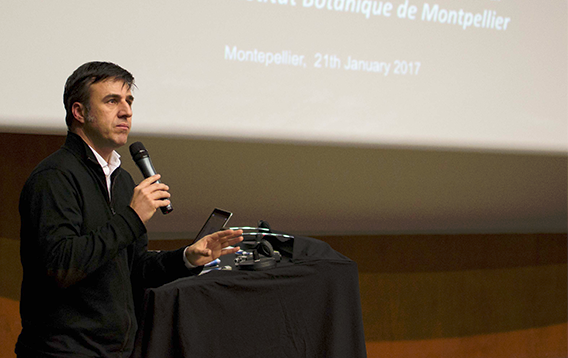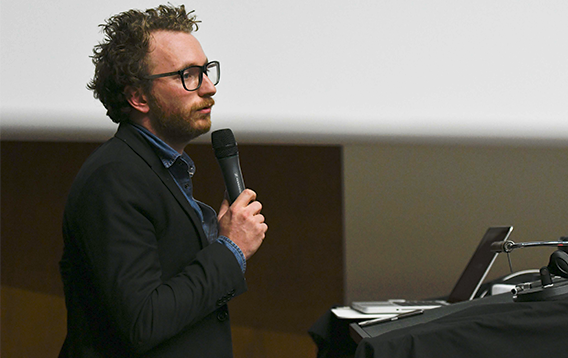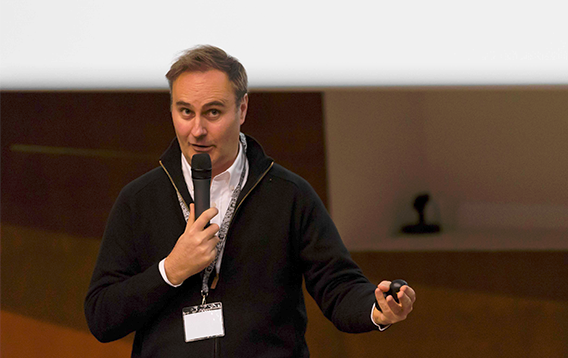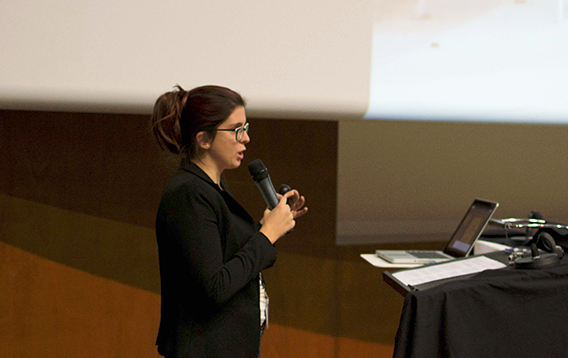
In Atlas is a company which works about data related to our territories…
In Atlas is a company which works about data related to our territories. We create technical applications, softwares to provide certain services to companies, but also to the city councils, with the administrations, in terms of town planning or for economic reasons. We put our work at the service of telecommunications, industries, like for banks, companies of detail, but it is not the focal point of my presentation of today. Today, the point which interests us is the European project with the Universities, and what we will show you is, on the one hand, what we have done for ten years within the company. The idea is to collect the data of a phenomenon that is growing and disturbing, which is the division of the economy, and the directly dependent economy with the division of accumulation; and of another share, how we collaborate, to try to approach a new planning system, of design, which can be allowed to understand and integrate this new urban condition of the digital age, new industrial era in which we are completely immersed today. We are today at the digital age, but is very true that, the industrial era developed several processes which we must understand, to be in capacity to apprehend the current digital age. An American report describes five industrial ages, following one another approximately every fifty years. Several stages emergent of each age; there is the innovation, the disorganization of this innovation, then the development of the business. When there is innovation, there is a conflict with the previous innovation which you know. And it is an event each time, every fifty years. The industrial era is defined like that: there is an innovation, then a rupture of this innovation because of the company growth and the conflict with the previous industrial innovation. There is always an economic conflict and, unfortunately, the new innovation is generally that in relation to new industries. In the Twenties in the Thirties, when the car was invented, at an industrial age; unfortunately, this one did not make it possible to go more quickly than the horses. The new conditions of mobility were nevertheless the cars, and not the horses. That is important, because today, we are at a new age, we are at the digital age. And it is not true that it is not connected! Here, I want tomake understandable to you only one thing: the new way of regulating the digital age; where the age of the Internet is responsible, and generator of basic models. Front, we were able to have a security, a warranty and a regulation on the law, to be able to have, for example, a building permit to construct a house. Now, we are in a completely different age, where we let people make, see whether that it goes. Now we make tests, we sell them, we observe if people buy, we launch the production; then we make the laws. The things change radically. Today, we propose models, bases, we let people innovate, that created of the innovations, that works. That means that we regulate thereafter, later. I can appear a little radical and very hard, but we have nowadays, of the governments or the institutions which have million inhabitants. I speak here about Google, Facebook, but I also speak about AirBnB or many other platforms which function with their own rules. Thus, is the question to know how to stop them? The policies influence the city planning, our way of being and of acting; and it is exactly the point which I put here forward: that thus affects the reality of town planning.
by Luis Falcon
In Atlas



